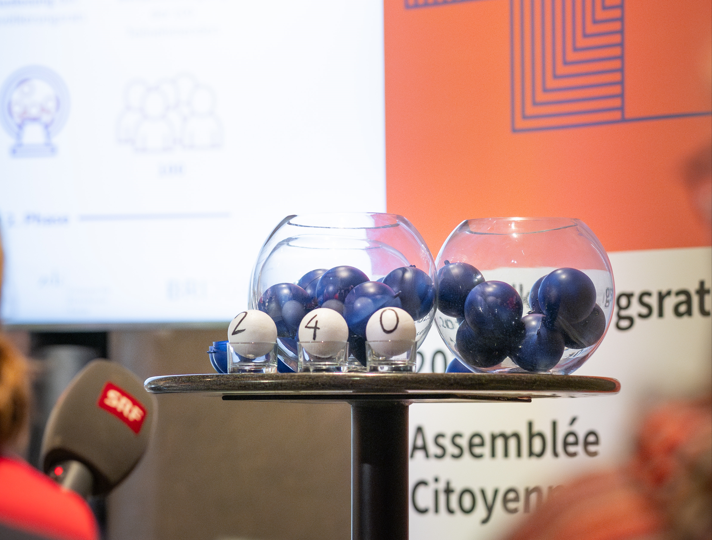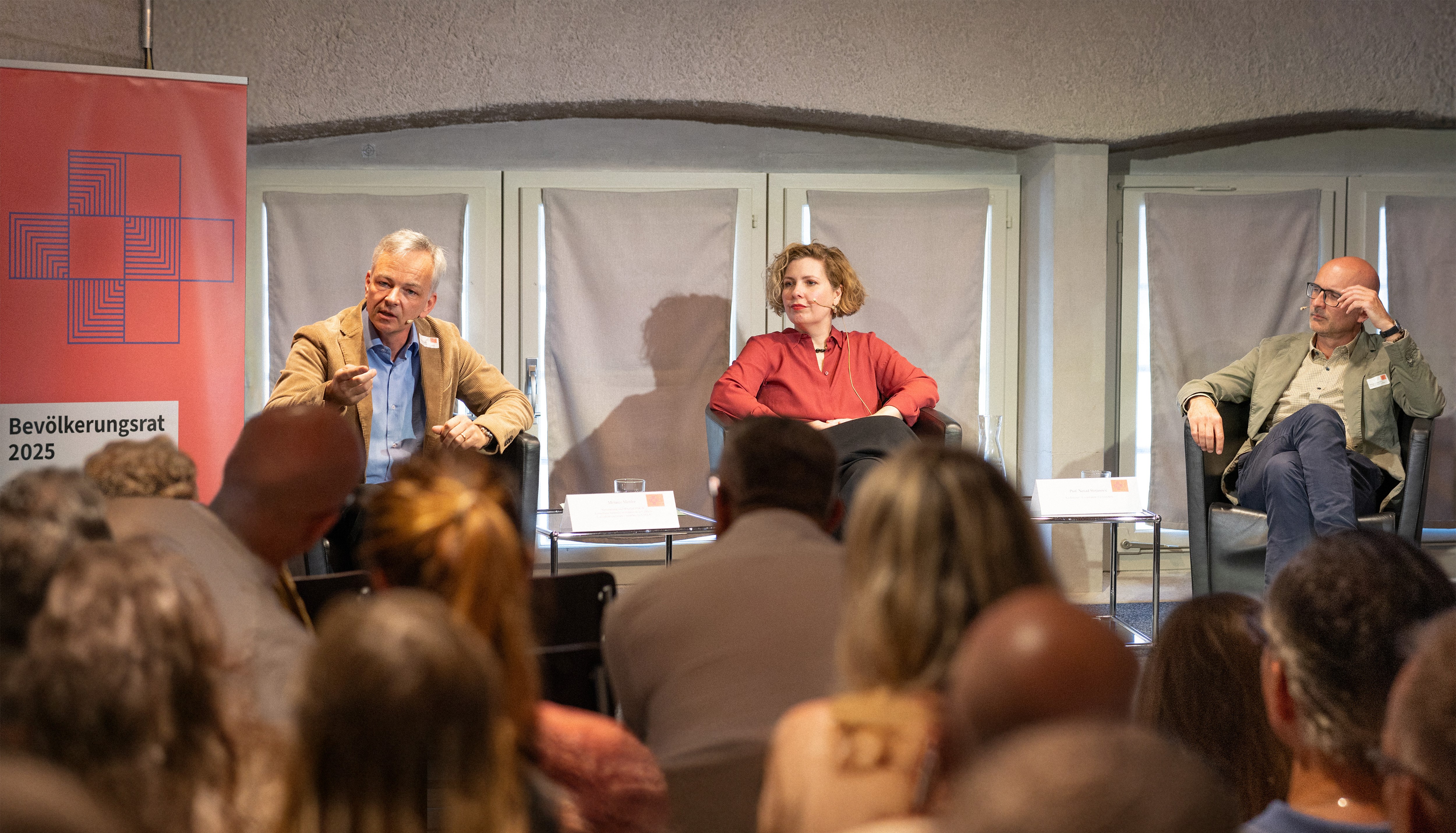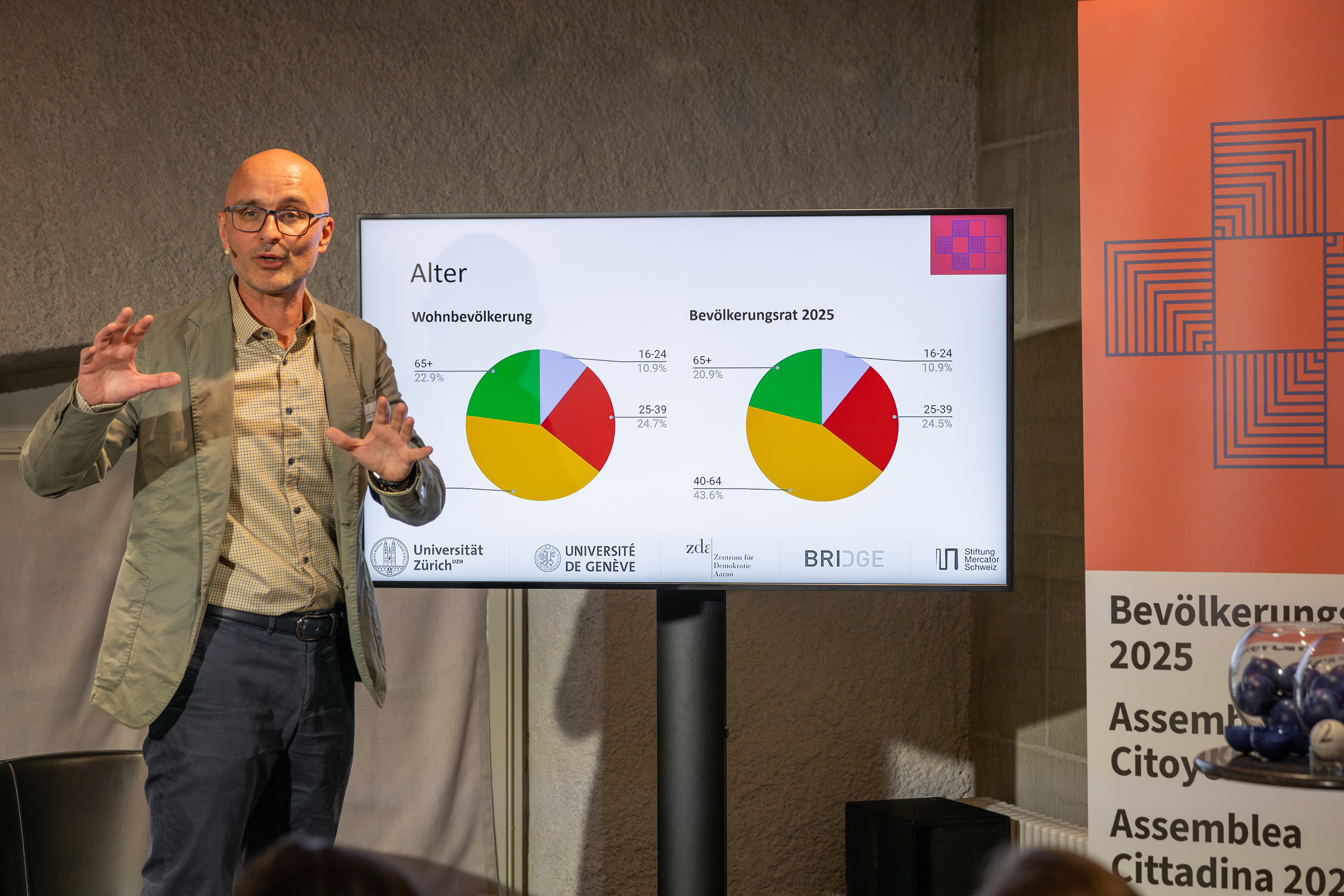100 people drawn for the Citizens' Assembly 2025
The media conference for the "Citizens' Assembly 2025" research project took place on Tuesday, 25 June. In addition to the announcement of the topic, 100 people were drawn by lot at the Polit-Forum Bern to take part in the Citizens' Assembly from November 2024.

"Which parts of Switzerland do you come from?" asked Daniel Kübler, co-initiator of the project at the University of Zurich, at the start of the event in the packed hall at the Polit-Forum Bern. Some hands shot up at the word "German-speaking Switzerland", but surprisingly, many also travelled a little further afield, for example from French-speaking Switzerland or even Ticino.
Over 30 people who registered for the Citizens' Assembly listened intently to the speeches by Prof Daniel Kübler, National Councillor Melanie Mettler and Prof Nenad Stojanović (co-initiator at the University of Geneva). Above all, they wanted to know whether they were among the hundred people who will take part in the Citizens' Assembly from November 2024.
-

- Zoom
- The podium at the media conference in the Polit-Forum Bern (from left to right): Prof Daniel Kübler, National Councillor Melanie Mettler and Prof Nenad Stojanović (photographer: Michael Gehrig, Bern)
But first, Daniel Kübler explained how the Citizens' Assembly 2025 works and announced the topic for the first time. In a representative survey, over 40% of respondents had decided that the Citizens' Assembly should discuss "rising healthcare costs" - before other important topics such as energy supply, financing old-age provision or European policy. With this research project, the universities of Zurich and Geneva want to investigate the extent to which citizens' assemblies are suitable for organising important social debates. It will be interesting to see whether the Citizen's Assembly can provide new impetus in the difficult, polarised and sometimes deadlocked environment of health policy.
National Councillor Melanie Mettler, a member of the Citizen's Assembly political support group, emphasised the importance of new impetus in the debate on healthcare costs. "I can imagine that the Citizen's Assembly will promote ideas that are otherwise not at the centre of political discussions. These ideas could then be incorporated into the development of solutions that are acceptable to the majority," said Mettler.
Electricians next to kindergarten teachers
Stojanović emphasised the advantage of the independence of the randomly selected participants, who can act without lobby interests. The two-stage random process that led to the selection of the 100 participants ensured that the group was as diverse as possible in terms of age, place of residence, gender, education and political views. "These are completely normal, independent people: the Citizens' Assembly includes electricians alongside kindergarten teachers and pensioners alongside young people," said Stojanović.
-

- Zoom (JPG, 7 MB)
- Nenad Stojanović compares the age of the Swiss resident population with the group drawn by lot for the Citizens' Assembly (photographer: Michael Gehrig, Bern)
A total of 999 different compositions of the Citizens' Assembly were calculated. One of these compositions was drawn at the media conference at the Polit-Forum Bern. National Councillor Mettler and the two co-initiators Kübler and Stojanović drew a ball from three containers of blue balls. The final result was the number "240" and 100 different codes were displayed. All those registered had received a personal code in advance of the event and could use it to check whether they were one of the 100 members of the assembly. And indeed: one person in the room actually hit the jackpot and will be taking part in the Citizens' Assembly 2025.
The Citizens' Assembly will meet for the first time on the weekend of 16/17 November 2024 at the University of Zurich, with the first results expected in spring 2025. The public is already invited to have their say on the issue of rising healthcare costs. They can submit their priorities and focal points via an online platform. The proposals with the most votes will then be submitted to the Citizens' Assembly for discussion.
Loïc Schwab